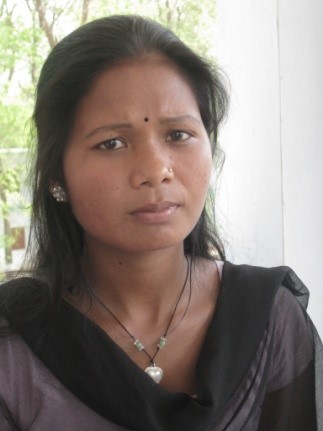Story
"If you have the will, you can achieve anything you desire."
"If you have the will, you can achieve anything you desire."

During the age when other girls
played and attended school, Shantikumari Chaudhary was not given the same
opportunity. In her childhood, she had to work as a Kamalari (bonded laborer) in a relative's house. Even when she occasionally visited home,
she felt a strong desire to study after seeing her younger brother start
school. She asked her parents to enroll her in school, but they ignored her
request.
After spending three years as a Kamalari, she saw other children in the village attending school and expressed her desire to study to her employer. Fortunately, her employer listened and freed her from bonded labor. Overjoyed, Shantikumari returned home, only to find that her younger brother had already been attending school for two years.
She pleaded with her parents to enroll her in school, but they showed little interest. Determined, she persisted in her request. Her father, reluctant at first, told her, "Why does a daughter need to study? Your elder brother studied up to grade five that should be enough for you too. After that, you must start working." Despite this resistance, she continued insisting until her father finally enrolled her in school. Reflecting on that moment, she said, "I had to struggle a lot to get an education. Even when my younger brother was sent to school, I was left behind. I had to cry and beg my father for two years before I was finally admitted." Now her younger brother is in grade 12 at the same school.
Even after completing grade five, she had to fight to continue her education. She worked in a brick kiln and did agricultural labor during school holidays to buy books and pay for her school fees. Only after promising her father that she would give him the remaining money did he allow her to continue. She recalls with a smile, "I told my father that I would only give him my earnings if he let me go to school. That’s how I convinced him."
Shantikumari comes from a family of ten members, including her parents, an elder brother, two younger brothers, a younger sister, a nephew, a niece, and a sister-in-law. Her elder sister is married. Among them, only she and her younger brothers have received formal education, while the rest are merely literate.
Even though she managed to go to school, she struggled to study at home. She had household chores to complete, and at night there was no kerosene to light a lamp. She had to use firewood to create enough light to do her homework. Recalling those days, she said, "Since we couldn’t afford kerosene, I had to study in the light of a burning fire." Even today, her village does not have electricity. To overcome this challenge, she now stays with her aunt in a nearby town so she can study under proper lighting. "I thought I might be able to study better with proper lighting, so I chose to stay at my aunt's house," she explained.
Besides her studies, Shantikumari is actively working for her community. She is currently the village-level president of the Freed Kamaiya Society, where she advocates for the rights and awareness of freed bonded laborers. She proudly shared, "Through my education, I have been able to raise awareness in my village. Now, no girls in my community are forced to be Kamalari anymore. Awareness has increased among us."
With financial support from Reach Out to Asia, in partnership with ActionAid Nepal and FAYA Nepal, Shantikumari is currently studying Veterinary JTA at Shree Krishna Higher Secondary School, Krishnapur, Kanchanpur. Expressing her gratitude, she said, "I am thankful to the organizations that helped fulfill my dream of getting an education."
Looking back at her journey, she
became emotional and said, "If you have the will, anything is
possible."